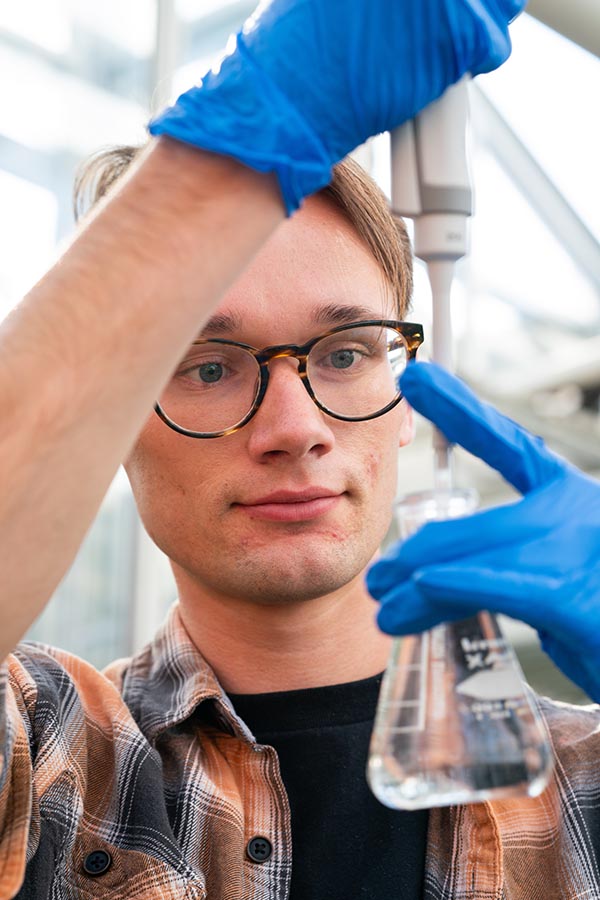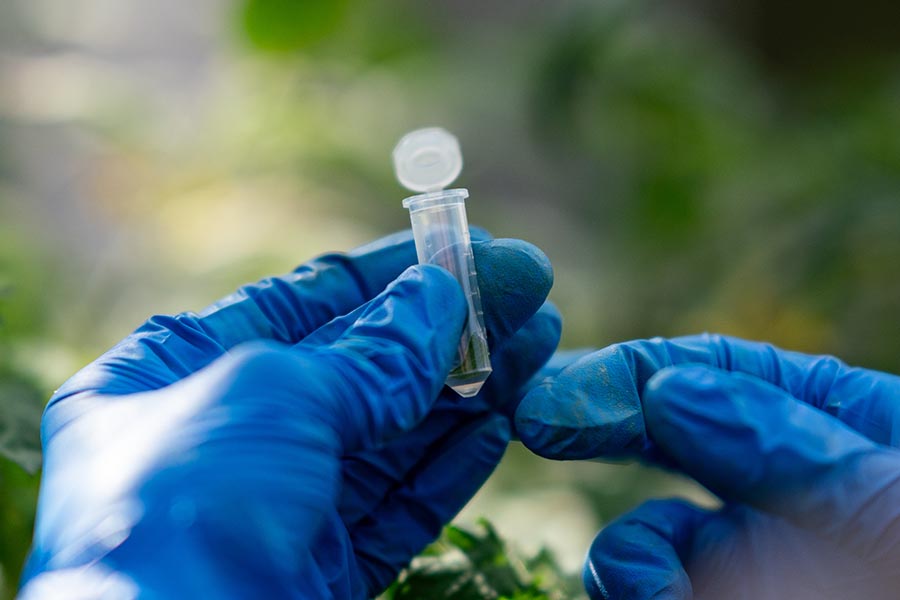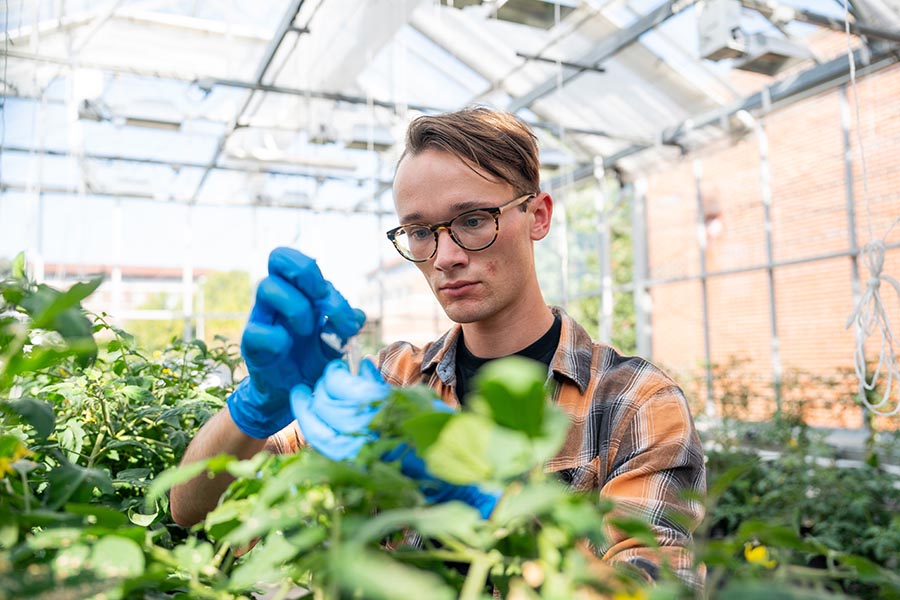Frederick Mildenhall- Graduate Ag Research Spotlight
My least favorite thing about science is working alone. I find ‘group think’ absolutely riveting.
- Frederick "Freddie" Mildenhall, PhD candidate, Department of Horticulture and Landscape Architecture
The student
Frederick “Freddie” Mildenhall feels a dual identity — “born English but definitely raised American,” he says. His family emigrated from the United Kingdom when he was about 12, and Mildenhall spent his formative years in Westchester County, New York. A high school program for students interested in science connected him with an ecologist at the local nature preserve and fostered his “love of the plant sciences and enjoyment of the scientific process.” At the University of Wisconsin-Madison, he benefited from additional mentors who supported his double major in in horticultural sciences and genetics as well as his work ethic. “I’ve always enjoyed balancing academics and a part-time job,” he says. “At university, I got to make those jobs academic-related, so I spent time in all different types of biological labs.” He enjoyed lab work so much that he decided to become the first member of his family to pursue an advanced degree in the sciences. He applied to several graduate programs but chose Purdue for the strength of its plant science program and a virtual admissions day “where the enthusiasm of the staff came through across a Zoom call.” He arrived in August 2021 and as a PULSe student, rotated through different labs before choosing that of Kranthi Varala, assistant professor of horticulture and landscape architecture. The deciding factor was Varala’s weekly lab meetings. “They’re so fun,” Mildenhall says. “We team up with another lab in the department, so you get about 10 to 15 scientists in a room and it’s like the Arthurian Round Table in the basement of this building.”
The research
“Humans have a circadian rhythm that drives us to wake up and go to sleep, and plants have one as well,” Mildenhall says. At the genetic level, a plant’s circadian rhythm regulates biological processes. He studies its intersection with cold temperatures using tomato plants moved into a refrigerator set to near-freezing, which essentially stops circadian rhythm. “Chronoculture is this idea that by manipulating the circadian rhythm, we can manipulate a lot of other systems,” he explains. Mildenhall likes that the lab has both molecular biologists like himself doing bench work and computationalists doing data science. “Dr. Varala has an immense skill set in machine learning and massive genomics datasets, and that’s our lab’s niche,” he says. “Because of my interest in using computational tools to solve plant biology problems, that’s really exciting.”
Opportunities
Mildenhall values the Center for Plant Biology for its networking and collegiality and was part of the team that revived its trainee organization after the COVID-19 pandemic. In addition to being a teaching assistant in spring 2024, he virtually mentors students from his high school who are part of the same program that helped him determine his own path, as well as Purdue undergraduates in person, mostly for USDA-NSF programs. At his department’s Research and Design retreat in May, Mildenhall won first place for his PhD oral presentation, an award he calls significant for its measure of his scientific progress.
Future plans
Mildenhall will likely complete the six-year PhD course in 2027. He credits Varala’s encouragement and the Purdue Data Mine with opportunities to collaborate with startups and larger-scale companies that have sparked his interest in working on group-based projects in industry. “I love the interwoven nature of collaboration,” he says. Away from the lab, he is an avid swing dancer who carves out a few hours a week for the dance scene at Purdue and in Indianapolis. He also enjoys reading about scientists and the history of science.






